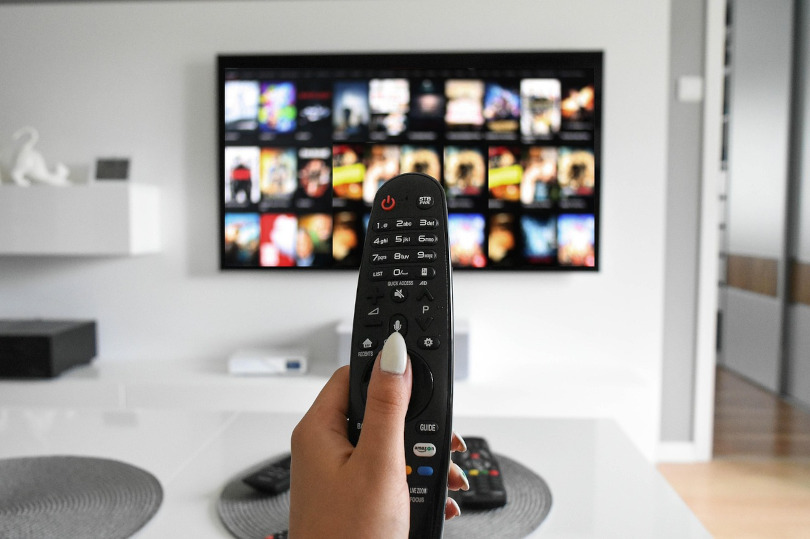I first heard about Love Island about a year ago, during Season 6 of the U.S. version. The show originated in the UK—now in its twelfth season—but didn’t gain real momentum in the U.S. until recently. Out of curiosity and a bit of FOMO (fear of missing out), I decided to tune in. I wasn’t sure what to expect, but so many friends were talking about it that I gave it a shot.
Before I knew it, I was all in: watching nightly, catching up on TikToks and tweets, and Face-Timing friends to unpack the latest drama like post-game analysts. I even joked, “Now that the season’s over, I can finally sleep early.” But somewhere between the memes and emotional goodbyes, I started wondering: Why do I care so much about these people I’ve never met?
Each summer, Love Island turns casual viewers into emotional investors. What begins as entertainment becomes ritual, and suddenly, a breakup between strangers feels personal.
What Are Para-social Relationships?
Coined in the 1950s by sociologists Donald Horton and R. Richard Wohl, para-social relationships (PSRs) are one-sided emotional bonds viewers form with media figures. PSRs feel real, even when they’re not.
Unlike casual fandom, PSRs create a sense of knowing. Viewers feel loyalty, empathy, even attraction. As Dr. Brad Brenner—a psychologist and founder of Therapy Group of DC—explains, “These interactions start as fleeting but can deepen into emotional experiences that mimic real-life relationships.”
In a digital age of daily content and curated feeds, these relationships feel increasingly intimate. Especially when shows like Love Island are engineered to draw us in through edited clips and confessionals.
Love Island: The Perfect Storm for PSRs
Love Island airs almost every night for weeks, creating a shared routine and turning casual viewers into loyal fans. It becomes a nightly event, a group chat topic, a meme generator. Not watching means missing out. It creates a rhythm, a digital watercooler moment, where viewers gather nightly to watch, tweet, and debate.
The show becomes cultural currency. Phrases like “closed off” or “we’re still exploring” spill into everyday conversations. And if you’re not keeping up, you’re left out.
Audience Power = Emotional Investment
What really sets Love Island apart is its interactivity. Viewers vote on who stays, who leaves, and who wins. That illusion of participation deepens the connection. We feel like part of the story—even though we’re not.
Constant Exposure = Intimacy
With cameras running 24/7, we see everything: the arguments, the quiet chats, the naps. Contestants start to feel familiar, like friends we’re silently observing. Over time, that visibility starts to feel like closeness.
“People often confuse frequent exposure with emotional intimacy,” explains Dr. Brad Brenner. “The more we engage with someone’s curated life online, the stronger our sense of connection becomes, even when the relationship is entirely one-sided.“
When Fictional Feelings Become Real Consequences
While most PSRs are harmless, they can go too far. Love Island contestants often face online harassment from fans who feel personally wronged. The same emotional investment that fuels empathy can spiral into entitlement and abuse.
Viewers forget they’re reacting to edited storylines and assign moral weight to what may be producer-driven drama. It’s a reminder that emotional investment doesn’t always equal emotional accuracy.
What It Says About Us
Love Island doesn’t just entertain, it reveals something deeper about the modern viewer. We crave connection, even if it’s virtual or one-sided. We’re drawn to narratives, to people who feel just flawed enough to be relatable but glamorous enough to be aspirational. We want stories, relatability, romance, and routine.
And in a time when loneliness is a growing public health concern, recent WHO reports show around 1 in 6 people worldwide experience loneliness, linked to more than 871,000 deaths annually. It’s being treated with the same urgency as smoking or obesity.
So the next time you find yourself mourning a couple’s breakup on screen, ask yourself: Is it really about them, or is it about the part of yourself you saw in their story?
Featured image/photo by Mohamed Hassan from Pixabay.



Love Island definitely took over my life for a minute. I’m having withdrawals. But I also think the fanfair around it is because people are crazing a sense of community. Having people all congregating for the same thing every evening was a treat. But that doesn’t negate the growing parasocial relationships and how people’s biases jumped out. It’s definitely a reflection of us as a society.